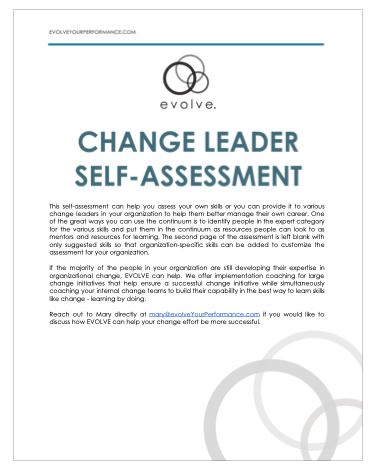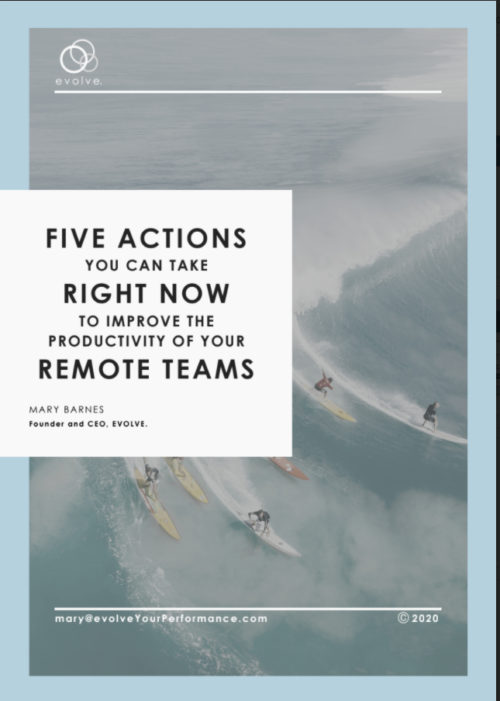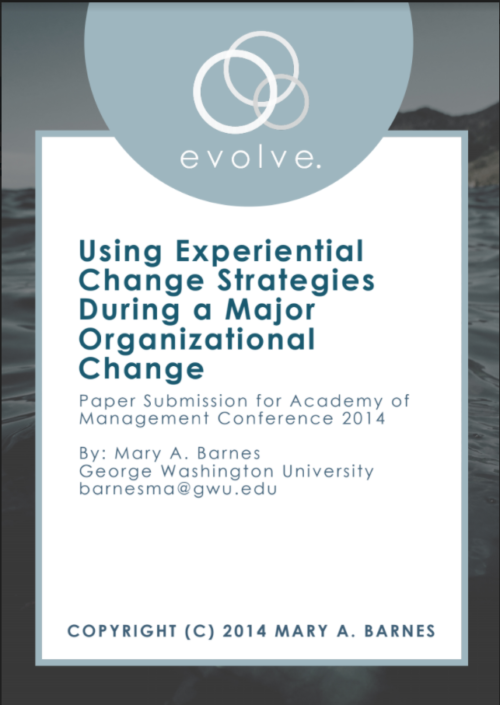-
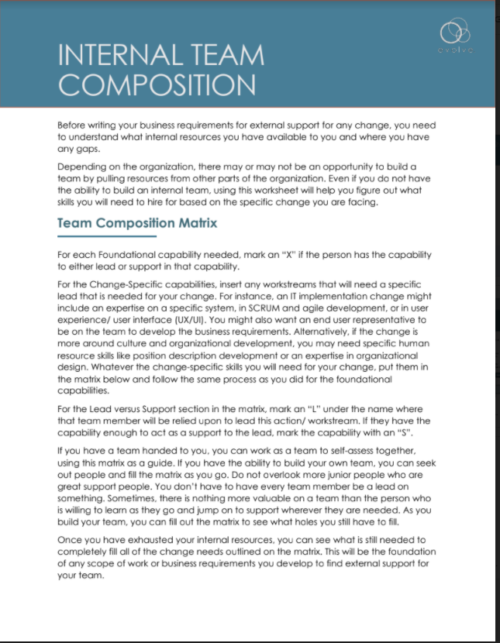 Building good business requirements and a scope of work can sometimes be the most intimidating thing about the process of bringing on external support. But, if you have used the matrix and figured out the big buckets of your change framework so that the needs are clear, its really just a matter of putting your needs down on paper and asking people to show you how they can help.
Building good business requirements and a scope of work can sometimes be the most intimidating thing about the process of bringing on external support. But, if you have used the matrix and figured out the big buckets of your change framework so that the needs are clear, its really just a matter of putting your needs down on paper and asking people to show you how they can help. -
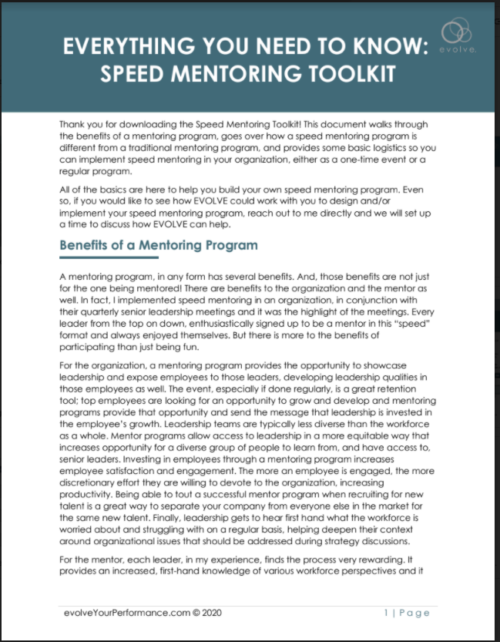 A mentoring program, in any form has several benefits. And, those benefits are not just for the one being mentored! There are benefits to the organization and the mentor as well. In fact, I implemented speed mentoring in an organization, in conjunction with their quarterly senior leadership meetings and it was the highlight of the meetings. Every leader from the top on down, enthusiastically signed up to be a mentor in this “speed” format and always enjoyed themselves. But there is more to the benefits of participating than just being fun.
A mentoring program, in any form has several benefits. And, those benefits are not just for the one being mentored! There are benefits to the organization and the mentor as well. In fact, I implemented speed mentoring in an organization, in conjunction with their quarterly senior leadership meetings and it was the highlight of the meetings. Every leader from the top on down, enthusiastically signed up to be a mentor in this “speed” format and always enjoyed themselves. But there is more to the benefits of participating than just being fun. -
 The concept of implementing organizational learning principles in an organization to help individuals and groups “learn to learn” (Schein, 2017), thereby making the ongoing adaptation and change that inevitably occurs in organizations more successful, is an interesting problem to explore. While interesting, there are very few studies that examine the sustainability of change in any context. Several theoretical models incorporate the idea of sustaining, or institutionalizing, change. But, very few empirical studies actually explore that concept.
The concept of implementing organizational learning principles in an organization to help individuals and groups “learn to learn” (Schein, 2017), thereby making the ongoing adaptation and change that inevitably occurs in organizations more successful, is an interesting problem to explore. While interesting, there are very few studies that examine the sustainability of change in any context. Several theoretical models incorporate the idea of sustaining, or institutionalizing, change. But, very few empirical studies actually explore that concept. -
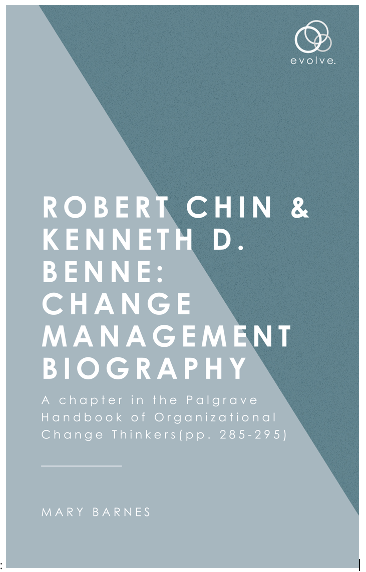 Robert Chin and Kenneth Benne spent key years in the middle of their careers working and collaborating with each other. Chin came from a social psychology background while Benne was from an educational philosophy background. During their time together, they founded an interdisciplinary Human Relations Center at Boston University, cowrote a seminal book on planned change with Warren Bennis and, within that text, developed three key strategies for implementing a planned change.
Robert Chin and Kenneth Benne spent key years in the middle of their careers working and collaborating with each other. Chin came from a social psychology background while Benne was from an educational philosophy background. During their time together, they founded an interdisciplinary Human Relations Center at Boston University, cowrote a seminal book on planned change with Warren Bennis and, within that text, developed three key strategies for implementing a planned change. -
 This work provides an overview of the contributions of Billie Alban, one of the foremost early thinkers and leaders in the field of OD and change. From her early childhood and throughout her life, Billie became the voice of advocacy for stakeholder inclusion. Starting with her young adult life, this chapter explores the influences early OD figures had on her development as a practitioner and then moves on to her own formidable contributions to the field which served to influence the development of generations of OD practitioners. Billie Alban’s key works on the use of large scale change methods, her collaborators and her beliefs that we are always in community are discussed, as is the key legacy of her work and presence in the field of OD.
This work provides an overview of the contributions of Billie Alban, one of the foremost early thinkers and leaders in the field of OD and change. From her early childhood and throughout her life, Billie became the voice of advocacy for stakeholder inclusion. Starting with her young adult life, this chapter explores the influences early OD figures had on her development as a practitioner and then moves on to her own formidable contributions to the field which served to influence the development of generations of OD practitioners. Billie Alban’s key works on the use of large scale change methods, her collaborators and her beliefs that we are always in community are discussed, as is the key legacy of her work and presence in the field of OD.
